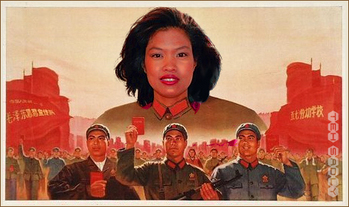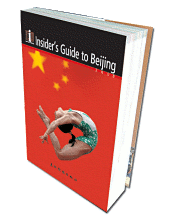One of my favorite reporters in China, Peter Ford, strives to provide some balance and perspective on this complex and emotionally charged topic. Although nothing he tells us is new to those who keep up with what’s happening here, it could be useful to the majority of human beings whose perceptions are formed by fiery op-ed columns, online forums and 30-second news clips on TV.
The question it addresses is simple: Have human rights improved in China over the past 25 years, and if so, how? The conclusion is predictable, but only because it is true: Of course human rights have improved, but Mao set the bar so low that even vast improvement is not enough; China still gets failing grades when it comes to rule of law, freedom of speech, and its oppression of groups such as Falun Gong, Uighurs, unauthorized churches, etc.
“Nothing we do today was possible 25 years ago. Compared with then, the human rights situation in China has improved like never before.”
And that enthusiastic assessment comes from a man who was fired from his job in 2006 as editor of a Communist youth newspaper for publishing an article that contradicted the party line, Li Datong.
But the baseline, he points out, was pretty low. “In 1983, I would probably have been arrested.”
Twenty-five years ago, Chinese citizens were not free to choose their jobs: The authorities assigned them work for life. Farmers were forbidden to live anywhere but the village where they were born. Nobody was allowed to travel abroad, except on government-authorized business. Nobody could dream of owning a car, let alone a house. Food was rationed. Nobody was allowed to set up a business. Western movies and books were banned.
Today, all that has changed. And as the state has relaxed its control over the minutiae of daily life, citizens have also felt freer to express themselves to each other. Among friends and neighbors, Chinese say what they think about everything, from their political leaders to rising prices to their country’s medal chances at the Beijing Olympics.
The dark side then follows, but the conclusion is clear: yes, human rights have improved for the majority of Chinese, and no, the reforms to date don’t go nearly far enough. Of course, to the polarized factions who dwell in the comments, simply acknowledging any improvement of any kind in China is to be a communist shill. And to others, bringing up the oppression of Falun Gong or Uighurs means “you don’t understand China” and “why don’t you just go home?”
Meanwhile, Peter Ford isn’t a shill for the CCP and I think he does understand China. It is hard for some to grasp, but you actually can hold contradictory opinions about China. You actually can reconcile your dislike for much of what the CCP represents with your finding some benefits (even – gasp – enjoyment) in living here. Just as I was able, when I moved back to the US in 2003, to reconcile my loathing of George Bush with my appreciation of the many freedoms we enjoy in America. My living there and enjoying my work and saying so did not make me blind to America’s evil or a shill for George Bush.
How can you reconcile the jailing of Hu Jia with your firm belief in fundamental freedoms? How can you reconcile the thousands of executions each year with your viewpoint that capital punishment is abhorrent? I can’t speak for anyone else. But I can say that for me, it is often very difficult. But just as when I lived in America, I saw the good of the people and the hope and, for many in China, the improvement in the quality of life, and I made the choice to be here, to observe, and to make my contribution by speaking out and condemning actions that I see as obscene and immoral. Like Hu Jia. Like the “cyber-dissidents” rotting in jail. Like Shi Tao and so many other journalists imprisoned for telling the truth.
It isn’t easy but it can be done, and doing so does not make someone evil. If so, then I have many, many, many evil friends, only I can promise you, they are among the most splendid people on the planet.


Comments